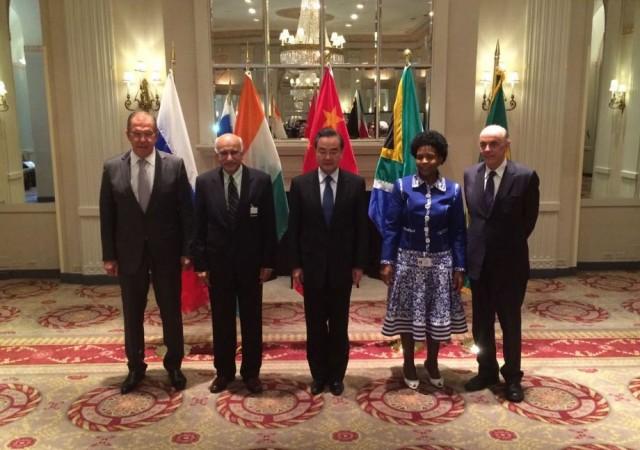
India is set to step up its offensive against Pakistan following an attack on its Army base in Uri that killed 18 soldiers, provoking strong international condemnation.
Following the Uri attacks, Prime Minister Narendra Modi has met his cabinet colleagues and Home Minister Rajnath Singh has reviewed security situation in Kashmir.
India wants to declare Pakistan a global terrorist state, which was echoed in Singh's statements after the Uri attacks, when he called it a "terrorist state."
Meanwhile, Venkaiah Naidu, information minister in Indian government has said that India needs to take up the issue of Pakistan being an epicentre of terrorism in the United Nations and "in a serious manner."
India for that matter has received support from members of UN Security Council including Russia, US, France, UK and China. Many other countries have strongly condemned the Uri attacks.
In a meeting on 19 September, PM Modi gave his approval to isolate Pakistan at international forums, reports noted.
India came down heavily on Pakistan at the UN Human Rights Council, where it squarely put the blame on Pakistan as the "fundamental reason for disturbances in Kashmir," and it further asked its neighbour to "cleanse itself of its terrorists."
India called upon the council to urge Pakistan to "put an end to cross-border infiltration, dismantle the terrorism infrastructure, and stop acting as an epicentre of terrorism," Catch News reported.
S Jaishankar, foreign secretary had to rush back to India from Vienna to plan India's diplomatic outreach to isolate Pakistan.
India has also deployed MJ Akbar, junior External Affairs minister, who is expected to brief foreign ministers about Uri attack and raise the issue of Pakistan supporting terrorism.
Akbar has been meeting with several foreign ministers including those from Brics (Brazil, Russia, India, China, South Africa) countries like Russian foreign minister Sergei Lavrov, Chinese foreign minister Wang Yi, Brazilian foreign minister Jose Serra and South African foreign minister Maite Nkoana-Mashabane.
He will also be reaching out to other countries on the sidelines of UN General Assembly (Unga).
Previously Akbar met with several ministers from Non- Aligned Countries and had also been to several Organization of Islamic Cooperation (OIC) countries like Syria and Iraq.
Akbar is setting the stage for Sushma Swaraj, External Affairs minister who is expected to speak at UN General Assembly on 26 September, where she is expected to raise the issue of Pakistan using terror as a state policy and the recent Uri attacks. She is also expected to provide evidence of Pakistan's support for terrorism in the neighbourhood.
She is also expected to engage with international leaders both bilaterally and multilaterally strengthening India's argument against Pakistan's support to terror in the region.
UN can only impose sanctions on individual entities and not on countries. China has always supported Pakistan and has blocked India's move to ban terror outfit Jaish-e Mohammad's chief and the mastermind of the Pathankot terror attack, Masood Azhar.
Meanwhile, Pakistan has received support from Organisation of Islamic Cooperation (OIC) for its narrative of the Kashmir issue.
OIC Secretary General Iyad Ameen Madani had expressed concern over the Kashmir situation and called for an immediate cessation of atrocities by India. He even urged the Indian government to resolve the issue as per "wishes of Kashmiri people and the UNSC resolutions."
It was noted that Turkey and Azerbaijan extended strong support for the OIC statement. The External Affairs ministry is yet to respond to support extended by these countries to Pakistan.





![Ultrahuman launches Ring PRO, free charging case with more than just power and Jade AI [details]](https://data1.ibtimes.co.in/en/full/829151/ultrahuman-launches-ring-pro-free-charging-case-more-just-power-jade-ai-details.png?w=220&h=138)











